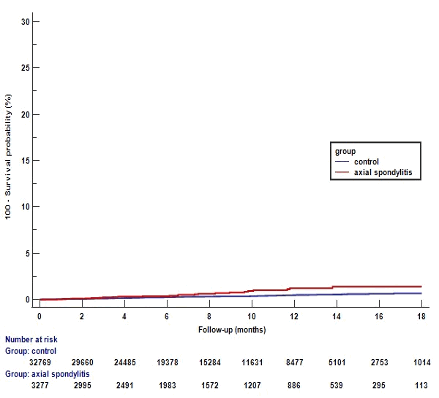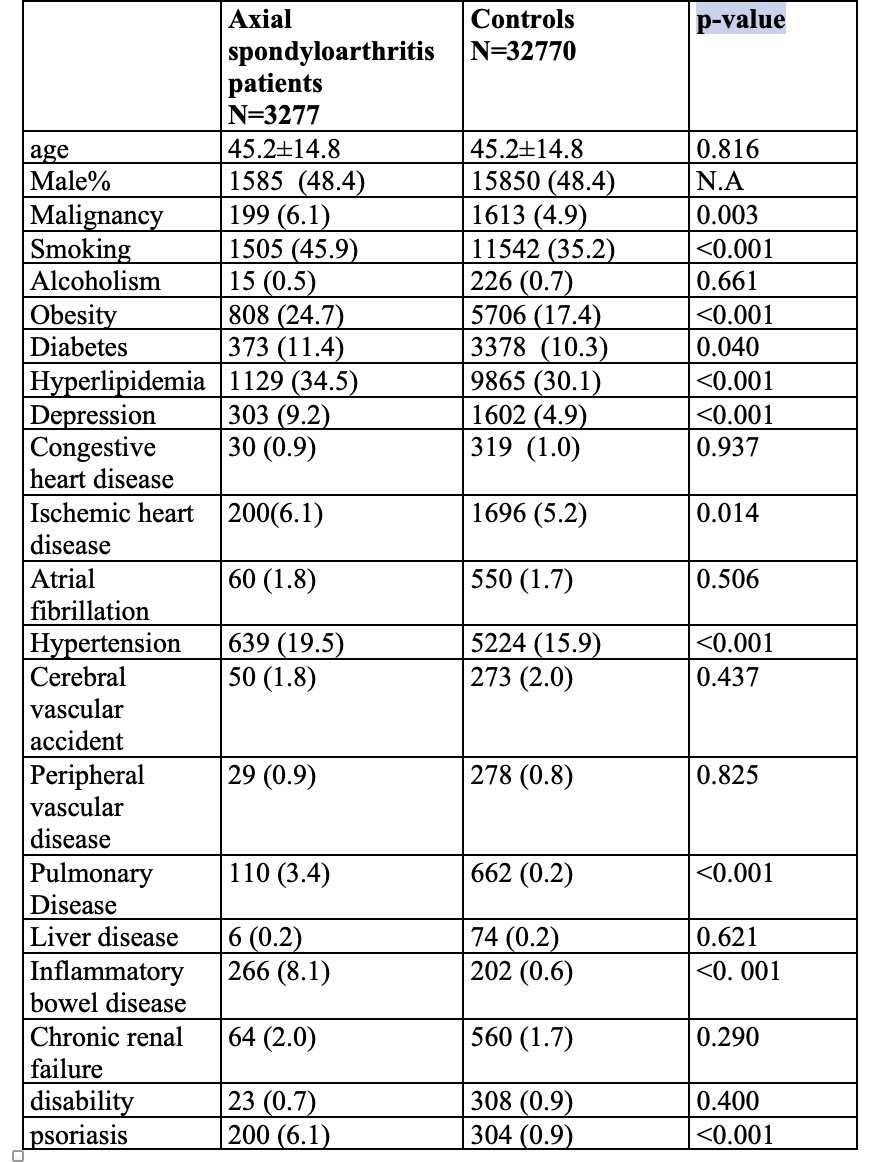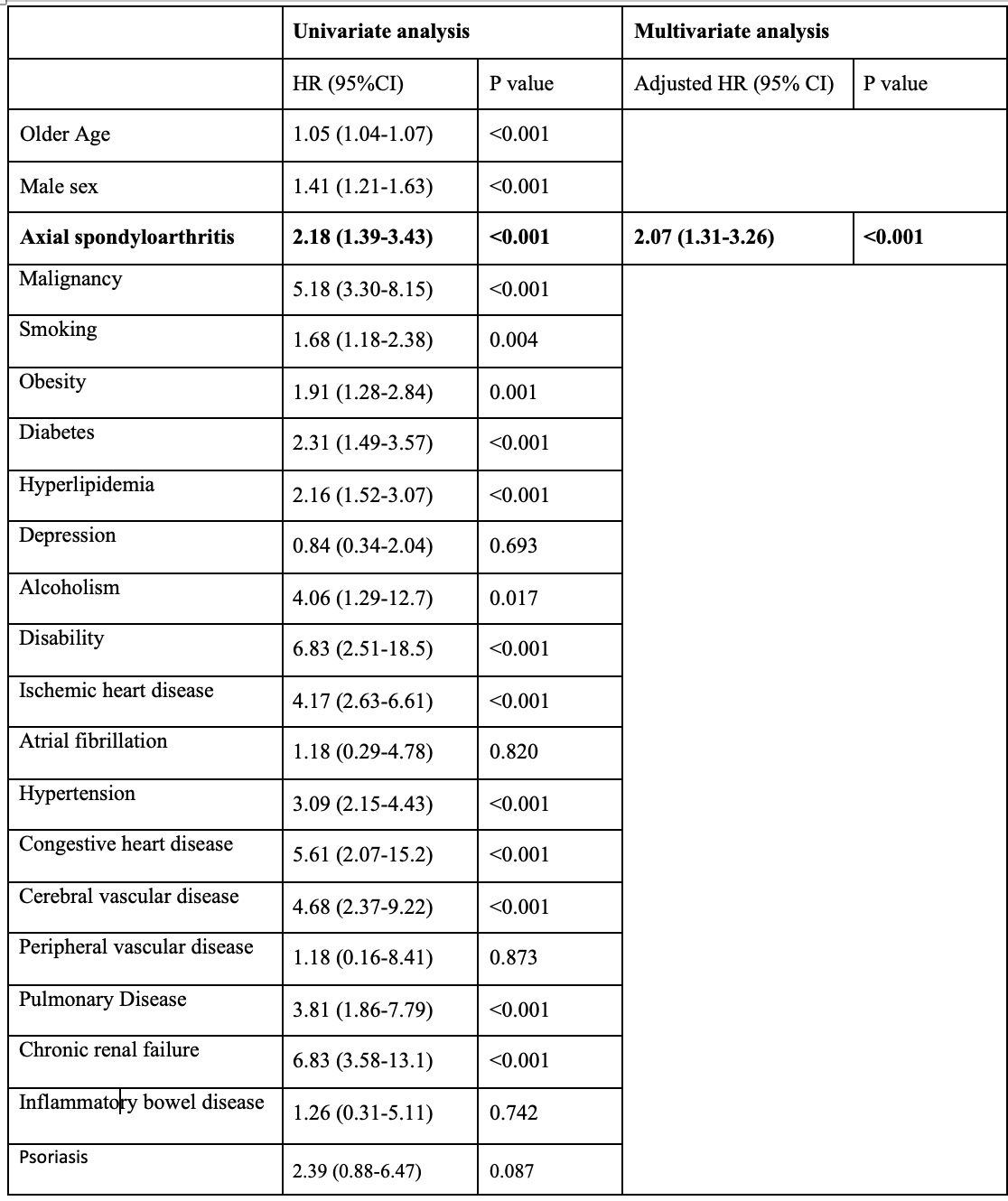Session Information
Date: Saturday, November 16, 2024
Title: SpA Including PsA – Diagnosis, Manifestations, & Outcomes Poster I
Session Type: Poster Session A
Session Time: 10:30AM-12:30PM
Background/Purpose: Scarce data exist regarding the incidence of venous thromboembolism events (VTE); pulmonary embolism (PE) and deep vein thrombosis (DVT), in patients with axial spondylarthritis (axSpA). The aim of this study was to compare the incidence of VTE in axSpA patients compared to controls using data from a large population database.
Methods: AxSpA patients were recruited between 2005-2022 from a large healthcare population-based database. These patients were identified according to a specific algorithm with a positive predicted value of 90% (95% CI 85-94%). Each patient was matched with 10 controls based on age, sex and index date. The outcome was the first VTE event reported in a hospital admission following the diagnosis of axSpA. Cox proportional hazard regression models were used to assess the association between AxSpA and VTE adjusted for demographic and clinical characteristics. Time to first VTE was estimated using Kaplan-Meir curves and compared between groups by log-rank test.
Results: : A cohort of 3277 axSpA patients were identified and matched with 32770 controls, 48.4% men, mean age of 45.2±14.8 (table 1). Twenty- three patients with axSpA (0.7%) developed a VTE event compared to 103 (0.3%) in the control group, HR 2.18, 95% CI 1.39-3.43, p< 0.001. The risk of VTE in the axSpA group continued to be significantly higher compared to controls even after adjustments for multiple co-morbidities, adjusted HR=2.07 95% CI 1.31-3.26, p< 0.001 (table 2). No difference was found at 5 years follow-up between the groups (log rank: p=0.104), however, after a mean follow-up of 8 years in both groups, the event rate of VTE was higher among the axSpA group compared to the controls (log rank: p< 0.001) (graph number 1).
Conclusion: A significant association between axSpA and VTE was found, this increased risk was apparent late in the disease course. Addressing the VTE risk in axSpA patients is recommended.
Baseline characteristics of the study population
To cite this abstract in AMA style:
Arraf M, Zisman D, Saliba w, Stein N, Feld J. The Risk of Venous Thromboembolism in Axial Spondyloarthritis: A Population-based Study [abstract]. Arthritis Rheumatol. 2024; 76 (suppl 9). https://acrabstracts.org/abstract/the-risk-of-venous-thromboembolism-in-axial-spondyloarthritis-a-population-based-study/. Accessed .« Back to ACR Convergence 2024
ACR Meeting Abstracts - https://acrabstracts.org/abstract/the-risk-of-venous-thromboembolism-in-axial-spondyloarthritis-a-population-based-study/



